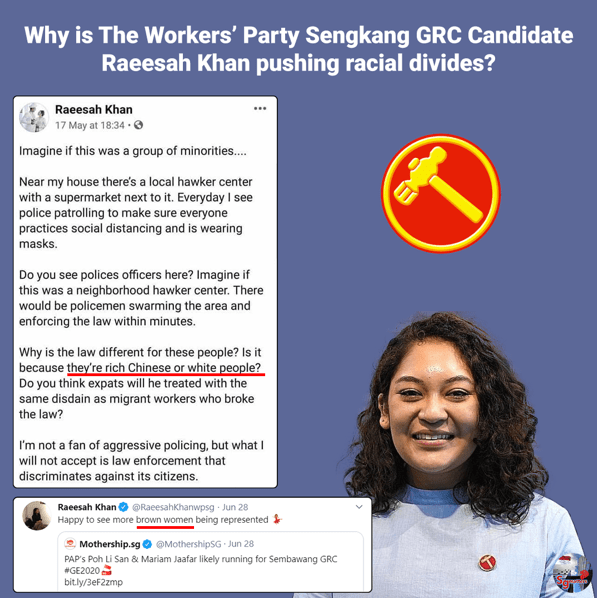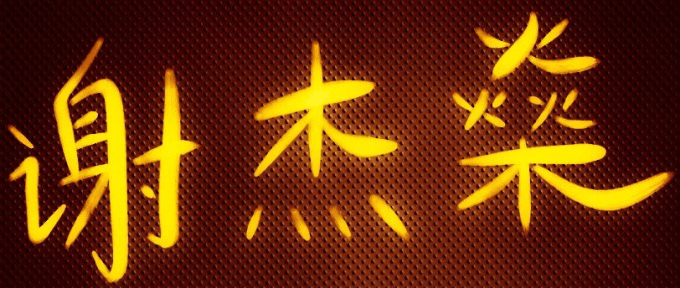61.24 percent.
The People’s Action Party won merely 61.24 percent of the popular vote in the 2020 elections. This is a sharp fall from securing 69.9 percent of the vote in 2015, much closer to 2011’s result of 60.14.
The PAP won 83 out of 93 seats in Parliament, with the other 10 seats going to the Workers Party. This is a historic win for the Opposition, gaining double digit seats in Parliament for the first time since independence.
The PAP brought it upon themselves. The government called for an election in the middle of the coronavirus pandemic, even though it wasn’t even necessary until next year. It’s clear that they hoped to capitalise on the crisis in a bid to win an overwhelming majority — and the people’s response has been equally clear.
More than that, it represents growing dissatisfaction with a government seen as increasingly out of touch with the needs of the people, as well as a desire for increased diversity in Parliament.
I fear that this desire for diversity will backfire.
Rebuking Kumaran Pillai
On 30 June, I wrote an article exposing Kumaran Pillai’s lack of integrity. It became my most-viewed post of all time, garnering 9065 views as of time of writing.
I am pleased to report that he has been decisively defeated at the polls.
It was odd, speaking against the Opposition in such a dramatic fashion for the first time. But for a matter like this, the needs of the nation transcends political affiliations.
I will not claim credit for ensuring the victory of People’s Action Party.
I will only say that I did my part in ensuring Kumaran Pillai did not win.
4G Leadership Fails Its First Test
Singapore is in the midst of a transition in its political leadership. But in this election, Heng Swee Keat, widely tipped to be the next Prime Minister, barely held on to his seat.
In Ang Mo Kio, current Prime Minister Lee Hsien Loong and his team won 71.91 percent of the votes.
In East Coast, Heng Swee Keat and his team won a mere 53.41 percent of the votes.
This is a stunning rebuke of the PAP, especially for someone who is supposed to be the next Prime Minister. His remarks on how the older generation of Singaporeans weren’t ready for a non-Chinese Prime Minister must have come back to haunt him.
Tharman Shanmugaratnam is one of the few Establishment figures who enjoys widespread support from both sides of the aisle. In multiple surveys, respondents have clearly signaled that they would prefer him to be the next Prime Minister.
In Jurong, he and his team won 74.62 percent of the vote, eclipsing even the current Prime Minister.
The 4G leadership, helmed by Heng Swee Keat, has clearly failed its first test. Should Heng take over, he will be on very shaky ground. It is conceivable that in the next election, he could lose his seat as well.
The best possible choice the PAP could make at this stage is to prepare Shanmugaratnam for Prime Minister. To continue to place their faith in Heng is to risk losing the Prime Minister to an opposition party. That would be unprecedented in Singapore’s history, and practically unthinkable to everyone.
I don’t know if the PAP will do it, only that anything other than respecting this clear mandate is not likely to be well-received.
The Overton Window Shifts Left
In Sengkang, the people have chosen the Workers’ Party. In doing so, they have chosen identity politics.
Jamus Lim and Raeesah Khan are harder left than most politicians in Singapore. Tellingly, they use personal pronouns in their Twitter profiles. This is a surefire indicator of someone who has either allied themselves with social justice, or advocates it.
Raeesah Khan in particular has embraced identity politics. From GooderFeed on Facebook:

(Image from GooderFeed on Facebook)
(Image from Today via Facebook)
Khan calls herself an intersectional feminist, inspired by Marxist activist and terrorist Angela Davis.
Davis was a member of the Communist Party USA and the Black Panther Party. She bought weapons for three inmates to take over a courtroom during their murder trial in 1970, taking a judge and a juror hostage, ending in the deaths of the inmates and the judge. She was added to the FBI’s Top Ten Most Wanted List until she was arrested in 1972 and acquitted.
Khan speaks the language of social justice. She is inspired by a Marxist. The people have chosen her anyway.
This can be partly explained as a reaction to heavy-handed government response, and a skillful WP public relations response. When a police report was filed against Khan for making such statements, the people rallied around her. The government has always done everything in its power to disadvantage the opposition during election periods, and this is no exception. Khan apologised for making those remarks, but she did not disavow Marxism or identity politics.
Further, the Workers’ Party team better reflects the demographic of the Sengkang area. Sengkang has a younger demographic, with many young families. The WP team is likewise composed of new parents, all of them with children under the age of four.
In the run up to the polls, the people have consistently signalled a desire for an increased opposition presence in Parliament. The backlash against the government following the police report was expected. Likewise, the younger crowd trends liberal and progressive, much more accepting of social justice than the older generation.
While I understand the desire to check the government, I fear that this PAP vs Opposition paradigm, this rush to circle the wagons irrespective of what the person in question actually said or stands for, will lead to a slow decay.
Marxism has failed everywhere it has been tried. In the West, in its latest incarnation as ‘social justice’, it has led to riots, social divisions, and urban decay. Khan speaks the same rhetoric as those who are tearing down the West. Left unchecked, she will continue.
More than that, her presence in Parliament signals that identity politics directed against the PAP and the majority works. Left to stand, we will likely see more Marxists and fellow travellers run for elections, with Khan doing everything in her power to support them.
Singapore Moves Leftwards
This election has demonstrated that the Overton Window in Singapore has shifted to the left.
Singapore is often described as centre-right because of its pro-business policies. In truth it is centre-left, because of the pervasive government presence everywhere and mass social engineering. The PAP has consistently referred to itself as democratic socialists.
However, the government is called ‘the right’ in Singapore. In response, dissidents swing to the left. When you go further left from centre left, you enter the hard left. The realm of social justice, identity politics and Marxism.
I’ve seen signs of this among the socio-political crowd. Many political personalities proudly embrace the buzzwords and ideology of social justice. Now Marxism has entered Parliament for the first time since independence. The Overton Window has shifted left, and is likely to continue shifting left.
I suppose things will never be the same again.

Very informative post.
I wanted to ask cause I'm new to Singapore politics,
You never state the reason why the PAP couldn't upload it's high percentage of votes. You just said that they wanted to capitalise on the pandemic. Its interesting the thought that went into such a plot.
The PAP has always relied on pushing a siege mentality. Singapore is alone, the world is unpredictable and dangerous, we must stick together and move ahead. The pandemic plays into its political strategy.
I'm heartened to see it fail for the first time in my memory. There's a lot of anger at the government for putting the people's lives at risk by holding an election while the virus is still going around.
I see.
I'll like to see how things turn out